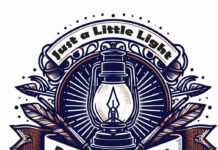President Biden had a chat last week with British Prime Minister Kier Starmer about many things, but tops on the list was Putin’s hint of a NATO war if the Ukrainians use U.S. missiles and know-how to blast targets far into Russia.
Welcome back, 1973.
Half a century ago President Nixon’s Secretary of State, Henry Kissinger, had outlined his Year of Europe, a bolstering of the Atlantic partnership by the full cooperation of the United States. Nixon himself went on a grand tour. There was hardly a major capital in Europe where the bands were not practicing “The Star Spangled Banner” and “Hail to the Chief” with ruffles and flourishes.
Then as now, diplomacy involved more than weapons and sweet music.
Then as now, we need to improve our trade relations, especially in regard to European import of our farm products, and generally to better our balance of trade. In these matters, we were to deal with an enlarged and tougher European Common Market (today, the European Union). Never an easy task.
We have managed since then to disentangle our fuel supplies from Middle Eastern crises and the Arab squeeze, but fragile threads of alliances remain.
All of the Atlantic community, on both sides of the water, must maintain a sound medium of exchange, a stable currency with which to buy and sell. Money not only related then, as now, to current prices but determined the validity of long-term contracts and the safe storage of capital. This may have been far down Biden’s and Starmer’s list of things to worry about but no doubt came up in chats among their aides.
*
Then as now, it was crucial to perform the balancing trick of reducing armaments on all sides while at the same time keeping strong enough to dampen Russian ambitions. This part has been unraveling since Russia invaded Ukraine nearly three years ago, and was particularly relevant during the Biden-Starmer talks.
Western Europeans then, as now, still fear what they had once called “Finlandization”, a Russia so powerful that it can dictate the policies of its neighbors without the necessity of invasion. It has used Crimea and Ukraine as lessons in their promise of no idle threats; its spies poke about the Baltic states with aplomb.
Kissinger then and Secretary of State Anthony Blinken today point out that it will be necessary to maintain a U.S. military force in Western Europe, not as hostages against a Russian nuclear attack but as a counter-balance to Russian bullying.
During that brief, sweet moment of glasnost-detente with Gorbachev, a faint promise flickered for a unilateral troop withdrawal; that was gone in an instant in the back draft of Putin’s rush into power.
So long as our troops are on European soil even a half-century later, we are liable to be sucked into any European conflict, whether the Russians or other nations start it.
Avoiding war, its cost in blood and treasure, will continue to demand powerful and competent diplomacy, the guiding hand of a stable U.S. president, and a platoon of career foreign service professionals who know what they’re doing. Anything less, and optimism will be premature.





